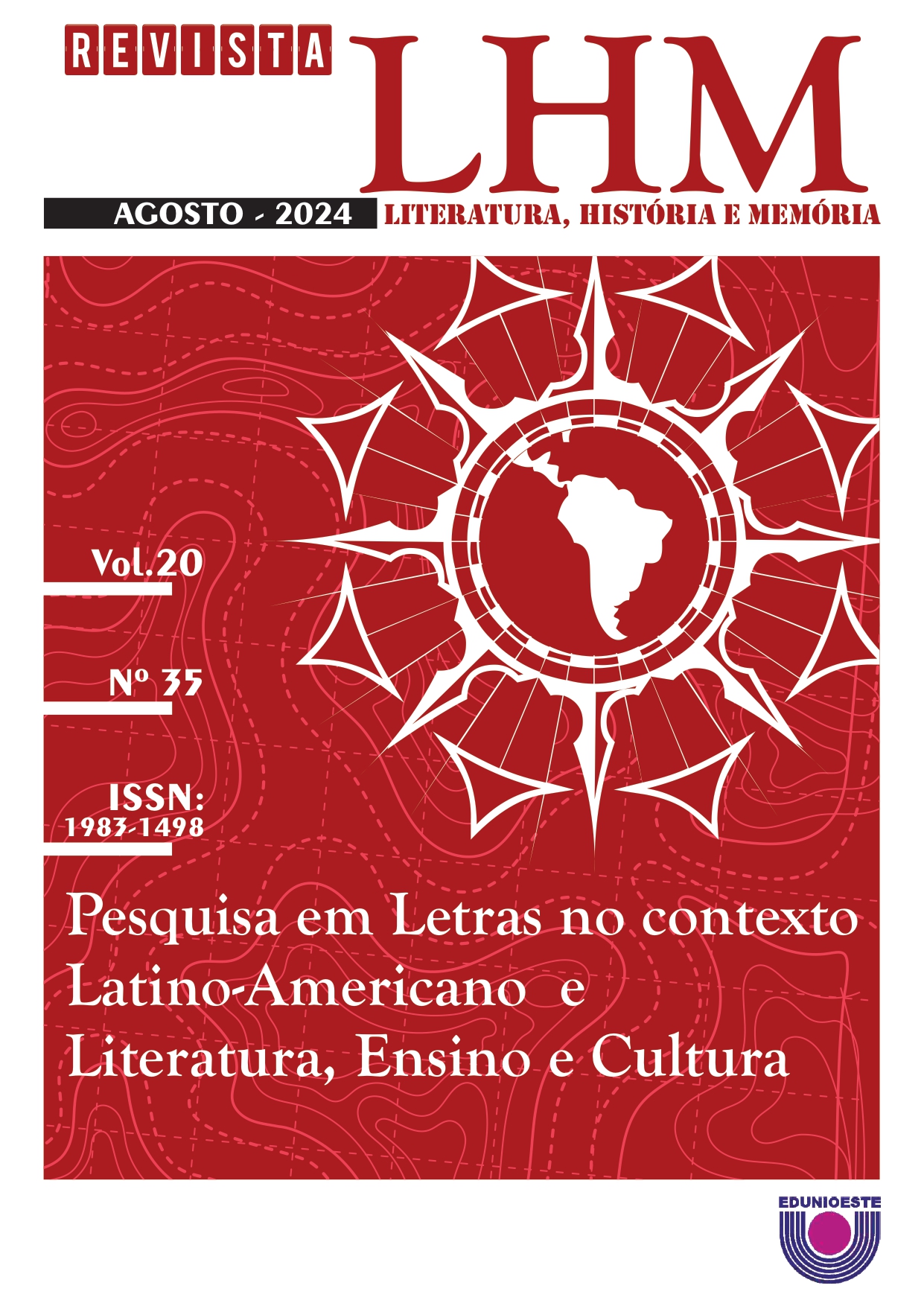A literatura de autoria feminina no Ensino Médio
lacunas e possibilidades
DOI:
https://doi.org/10.48075/rlhm.v20i35.32685Resumen
Historicamente, mulheres foram subalternizadas e oprimidas pela dominação patriarcal. Com o passar do tempo e a luta feminista, muitas barreiras foram rompidas, como por exemplo a entrada da mulher no mundo das letras. No entanto, o patriarcado abafou suas vozes no meio literário e segue invisibilizando produções literárias de autoria feminina. Este silenciamento de nossas escritoras é reproduzido no âmbito do ensino, que dedica uma atenção maior ao estudo das obras de autoria masculina, negligenciando nossas autoras. À vista disso, este trabalho tem o propósito de identificar as lacunas relacionadas à abordagem da literatura de autoria feminina no Ensino Médio, bem como discutir a sua importância, buscando apontar uma possibilidade metodológica de ensino para um trabalho efetivo com uma obra escrita por mulher, através de uma proposta didática. A metodologia utilizada foi uma revisão bibliográfica, na qual buscamos o suporte de autores e autoras que se voltam para os estudos na área da educação literária, como Cosson (2009), Zilberman (2012) e Silva (2005). Por fim, utilizando como base a sequência expandida de Cosson, apresentamos nossa proposta didática, a qual esperamos que possa inspirar a prática de docentes, nas aulas de literatura da educação básica.
Descargas
Publicado
Cómo citar
Número
Sección
Licencia

Esta obra está bajo una licencia internacional Creative Commons Atribución-NoComercial-CompartirIgual 4.0.
Aviso de Direito Autoral Creative Commons
Política para Periódicos de Acesso Livre
Autores que publicam nesta revista concordam com os seguintes termos:
1. Autores mantém os direitos autorais e concedem à revista o direito de primeira publicação, com o trabalho simultaneamente licenciado sob a Licença Creative Commons Attribution que permite o compartilhamento do trabalho com reconhecimento da autoria e publicação inicial nesta revista.2. Autores têm autorização para assumir contratos adicionais separadamente, para distribuição não-exclusiva da versão do trabalho publicada nesta revista (ex.: publicar em repositório institucional ou como capítulo de livro), com reconhecimento de autoria e publicação inicial nesta revista.
3. Autores têm permissão e são estimulados a publicar e distribuir seu trabalho online (ex.: em repositórios institucionais ou na sua página pessoal) a qualquer ponto antes ou durante o processo editorial, já que isso pode gerar alterações produtivas, bem como aumentar o impacto e a citação do trabalho publicado (Veja O Efeito do Acesso Livre).
Licença Creative Commons
Esta obra está licenciada com uma Licença Creative Commons Atribuição-NãoComercial-CompartilhaIgual 4.0 Internacional, o que permite compartilhar, copiar, distribuir, exibir, reproduzir, a totalidade ou partes desde que não tenha objetivo comercial e sejam citados os autores e a fonte.


